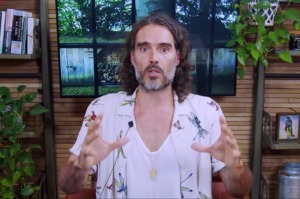Issue Analysis: Is Evangelical Opposition to Homosexual Behavior and Same-Sex Marriage Collapsing?
Evangelicals will, inevitably, "change with times," "adapt," "get with the program," "finesse their position" on homosexuality and same-sex marriage, some say. Historically, however, the churches that changed with the times have not fared well.
Opposition to same-sex marriage and the belief that homosexual behavior is sinful is "collapsing" among religious adherents, William Saletan wrote May 1 for Slate. "Theology is adapting. Resistance to same-sex marriage is dwindling, and there's no end in sight."
Saletan finds support for this contention from the recent "Faith Angle Forum Conference on Religion, Politics & Public Life" hosted by the Ethics and Public Policy Center. (Transcripts and audio available here.)
He pointed out that Michael Gerson, a Washington Post columnist and a graduate of the evangelical Wheaton College, said it "seems unfair" to expect "a heroic ethical standard" of celibacy from church members with same-sex attraction. Additionally, Cornelius Plantinga, a Calvin College theologian who has written books about sin, told Saletan over dinner that a lot of virtues, such as love, commitment and stability, can be found among same-sex couples.
Saletan also noted that Russell Moore, president of the Southern Baptist Convention's Ethics & Religious Liberty Commission, "continues to view homosexual behavior as sinful" but called for a change in tone in how evangelicals talk about the issue of homosexuality.
"Maybe Moore and his remaining flock can sustain a moral case against homosexuality in the face of these concessions. But I doubt it," Saletan wrote. "Once you accept the reality and persistence of the orientation, particularly within your congregation, you're on the way to the crisis Gerson described."
The "crisis," in Saletan's view, is that those with same-sex attraction are asked to remain celibate while, for instance, a glutton can still eat food and adulterers can still have sex with their spouse. Based upon that, Saletan reasons that the Evangelicals who believe homosexuality is a sin hold an "unsustainable" position.
Gerson and Saletan are likely correct in pointing out that some sinful desires are harder to resist than others. But all Christians are asked to resist sin. What is missed in their assumptions is that a sinful desire for gluttony will not be satiated by eating a normal amount of food and a sinful desire to cheat on one's spouse will not be satisfied by having sex with one's spouse.
Evangelicals are "pretty good at ditching unsustainable positions," Saletan continues, because many Evangelicals do not hold a Young Earth Creationist viewpoint. (Saletan uses the word "Fundamentalists" here, but from the context he appears to mean "Evangelicals.") If Evangelicals can hold different views about the age of the Earth, there must be some wiggle room on homosexuality, he concludes.
The comparison with Young Earth Creationism is a poor one. Young Earth Creationism, rising in response to modern geological findings, is only about 100 years old. (There were, of course, theologians, philosophers and scientists before that, who attempted to date the Earth and came up with "young" numbers, but that is different than the modern phenomenon to which Saletan is referring.) The dominant Church teaching on homosexuality, on the other hand, is as old as the Church itself. The teaching found in some churches today that homosexuality is an "identity" that should be embraced rather than sin, a symptom of the fallen nature of mankind, is new, about 50 years old, in the history of the Church.
Saletan correctly points out, though, that the trend in public opinion has been toward greater acceptance of same-sex marriage. So, will the Church die if it does not change its position on homosexuality? The Christian Post asked Moore that question in a May 12 interview.
"This is what the media have always said about Evangelicals and they've always been wrong," Moore answered.
Instead of Young Earth Creationism, Moore brought up the examples of miracles and the virgin birth. During the Fundamentalist-Modernist debate of the early 1900s, Moore noted, people were making the same arguments that Saletan and others are making today. Instead of homosexuality, however, they were saying the Church must no longer hold to the views that Mary was a virgin when she gave birth to Jesus, Jesus performed miracles, and Jesus was resurrected from the dead.
There were some churches, of course, that did "adapt" to the "changing times" by abandoning Church teachings on the virgin birth and miracles. Those churches, Moore pointed out, are the ones that have been dying.
If changing Church teaching in order to be culturally acceptable is the way to grow the church, "we would see a booming Unitarian or Presbyterian Church (USA) church planting movement. We don't.
"Instead, the only Christianity that has survived is authentic, Gospel Christianity. Which means that ... you can't grow Christian churches by becoming sub-Christian," he said.
Further, Moore argued that if the Church abandons the concept of sin, it will not have much to offer the world. Those who do not need to repent of sin have no need for grace.
"If we don't call people to repentance for sexual immorality," he said, "we are not Gospel preachers, we are leading people in sin and in condemnation and in the accusation of the Devil. The only way we can reach a lost world is by speaking clearly about what sin is so that we can speak clearly about what grace is."





























